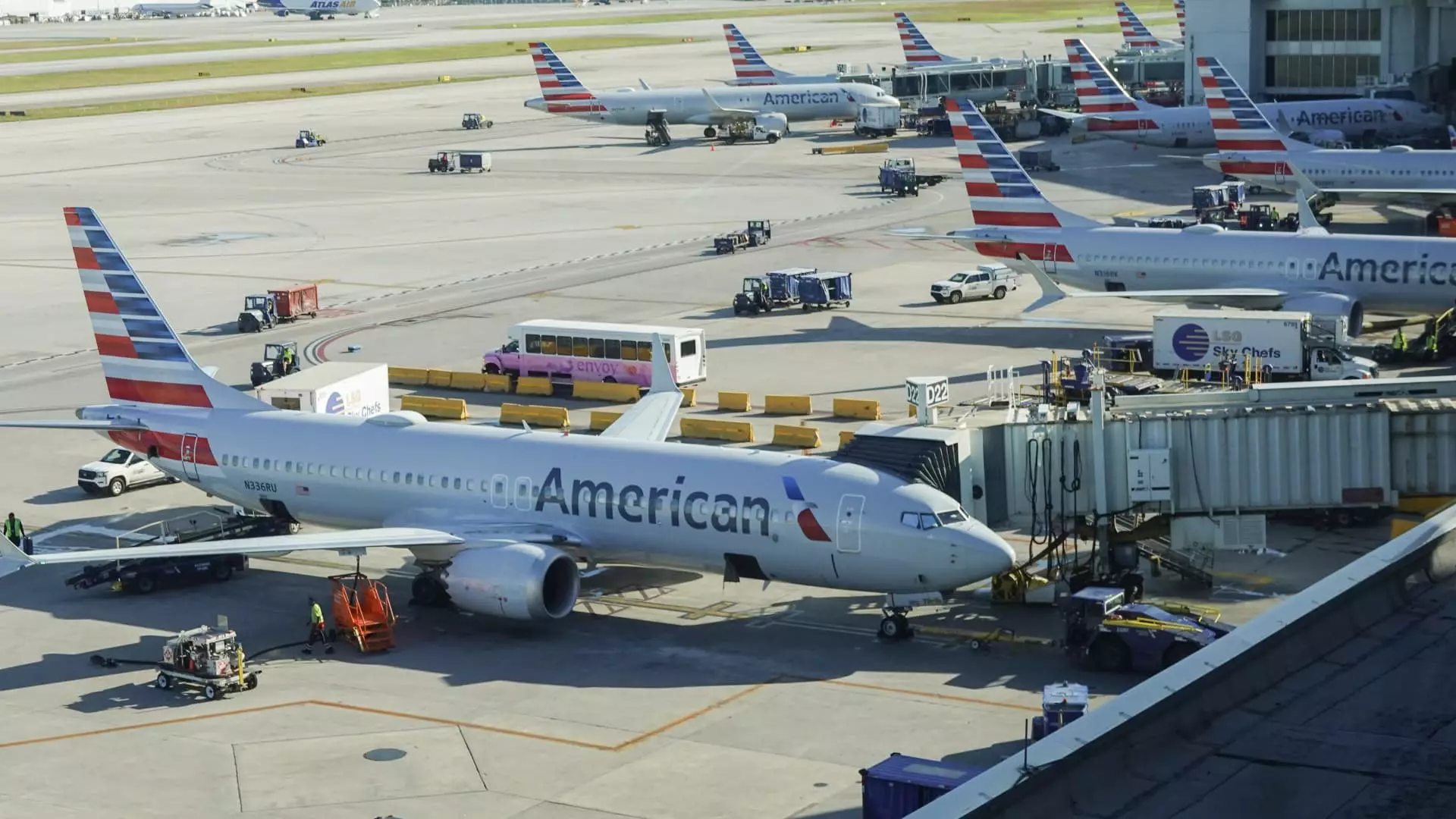On Tuesday morning, American Airlines experienced a significant disruption when it grounded its U.S. flights due to a technical malfunction. This incident coincided with a peak travel period anticipated by airlines, as many people prepare to travel for the holidays. By 7:55 a.m. ET, the brief ground stop was lifted after less than an hour, according to statements provided to CNBC by an American Airlines spokesperson. Despite the short duration, the impact of this glitch has raised concerns regarding the reliability of airline technology at a time when travel volumes are expected to surge.
Nature of the Technical Issue
The problem stemmed from a network hardware issue tied to a platform maintained by DXC Technology, a company responsible for overseeing the flight operation systems integral for departures. This system tracks essential data, including an aircraft’s weight and balance—critical parameters that must be verified before any aircraft is cleared to leave the gate. American Airlines promptly communicated that the issue had been resolved and operations resumed. They issued an apology to customers affected by the disruption, highlighting the airline’s commitment to customer service even amid technical setbacks.
The Federal Aviation Administration (FAA) confirmed that American Airlines had initiated the ground stop request to manage potential chaos at destination airports. Such measures are common; airlines often ask for ground stops to prevent a backlog of arriving flights in situations of disruption, which is especially vital during busy travel times. While technical malfunctions, adverse weather, and safety concerns can lead to these operational halts, the recent incident has spotlighted the fragile nature of airline technology infrastructures.
The timing of this glitch brings to light the ongoing discussions about the robustness of technology platforms utilized by airlines, particularly in the wake of recent high-profile service failures. Events such as Southwest Airlines’ operational crisis during the 2022 year-end holiday season and Delta’s difficulties following a recent cybersecurity incident have emphasized the vulnerabilities inherent in the aviation sector’s technological systems.
American Airlines operated at a reduced schedule on Christmas Eve compared to other days, which may have mitigated the effects of this technical problem even further. Notably, the airline reported no cancellations as a direct result of this glitch, indicating that their immediate recovery measures were effective.
As airlines approach the holiday season, enhancing technological resilience should be a critical priority. While American Airlines navigated this particular crisis effectively, the incident serves as a stark reminder of the dependence of modern travel on complex technology infrastructures. As we move forward, the aviation industry must collectively strive to improve these systems to minimize future disruptions and ensure a seamless travel experience for all passengers.

